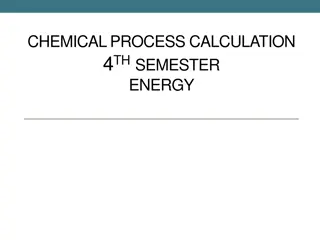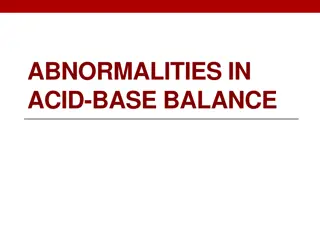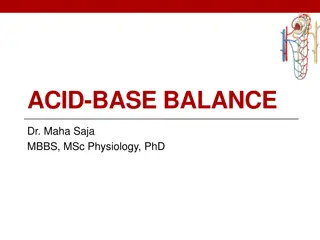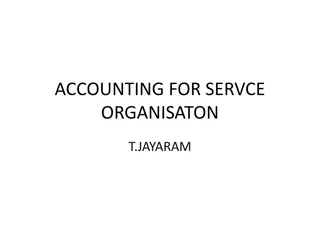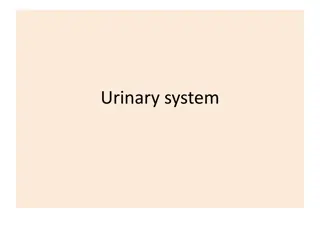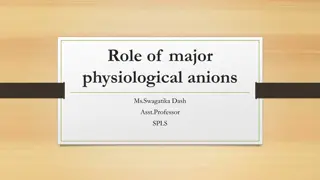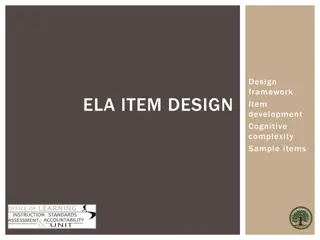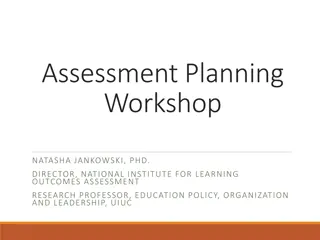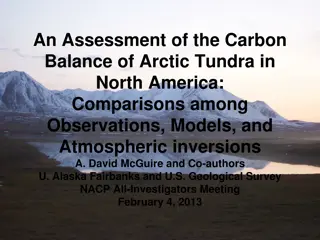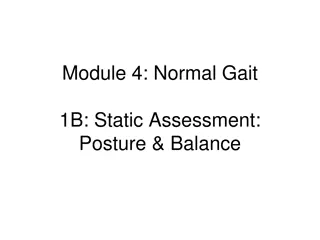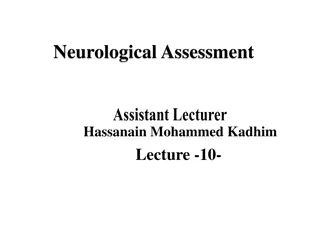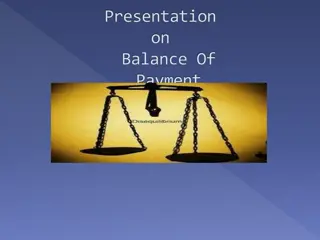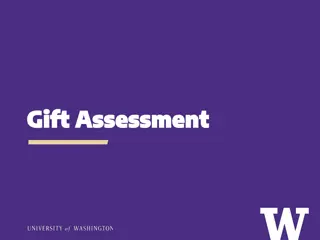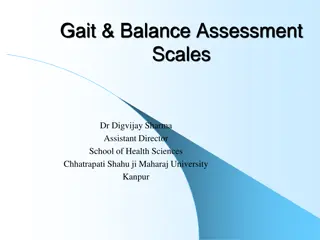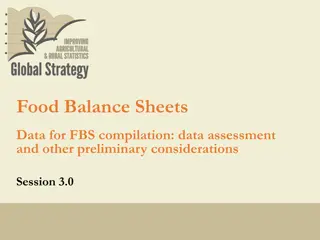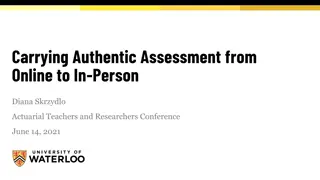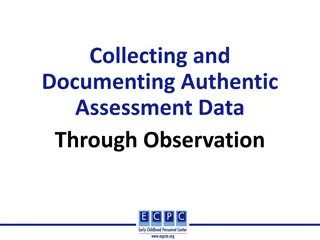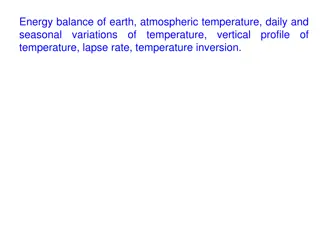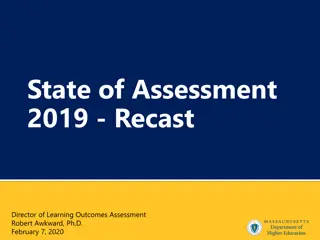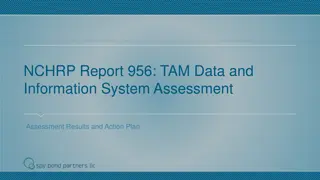Social Balance Theory and Network Interactions
Explore social balance theory and its application in network interactions, based on chapters 10 and 11 of "Networks, Crowds, and Markets" by D. Easley and J. Kleinberg. Learn about global balance index, exchange cost, social power, network building algorithm, random and scale-free networks, matching
3 views • 27 slides
Rashford's Exclusion Raises Questions as Southgate Navigates Delicate Balance Euro 2024
Rashford's Exclusion Raises Questions as Southgate Navigates Delicate Balance for Euro 2024\n\nhttps:\/\/blog.worldwideticketsandhospitality.com\/2024\/02\/01\/rashfords-exclusion-raises-questions-as-southgate-navigates-delicate-balance-for-euro-2024\/\n\nUEFA Euro 2024 fans from all over the world
6 views • 5 slides
Sheffield Early Help Assessment Form Update and Integration with Extended Support Plan
Sheffield has introduced an updated Early Help Assessment form to streamline the assessment process within the Early Help System. This new form combines the Early Help Assessment with the Extended Support Plan, aligning various assessment tools and referral forms into one comprehensive document. The
5 views • 22 slides
Enhancing Language Learning Through Peer Assessment
Explore the benefits of peer assessment as a valuable tool for language learning, comparing it with self-assessment. Discover the components and challenges of self-assessment, along with the potential of peer assessment to improve accuracy and promote self-regulation. Gain insights into what peer as
3 views • 29 slides
Overview of DSW End Point Assessment Team Leader Level 3
DSW End Point Assessment Team Leader Level 3 provides a clear understanding of the assessment process, ensuring individuals comprehend why and when it occurs, responsibilities involved, and how DSW supports them. It covers topics such as what End Point Assessment entails, assessment design and deliv
1 views • 18 slides
Understanding Energy Balance in Chemical Process Calculations
Energy balance in chemical process calculations involves determining the energy requirements of a system by accounting for energy flow into and out of each unit. This includes defining terms like system and surroundings, distinguishing between open and closed systems, and understanding different pro
1 views • 19 slides
Understanding Acid-Base Balance in Health and Disease
Many critical illnesses can disrupt acid-base balance, indicating underlying diseases or organ damage. Interpretation of disturbances requires analyzing arterial blood gases, plasma electrolytes, and compensatory mechanisms. Acid-base disorders are classified into respiratory acidosis, respiratory a
3 views • 26 slides
Understanding Acid-Base Balance in the Body: Importance and Regulation
Acid-base balance is crucial for maintaining optimal health, as slight deviations in hydrogen ion concentration can impact enzyme activity and metabolic processes. The body employs various defense mechanisms to regulate pH levels, involving buffers, lungs, and kidneys. Strong acids release more H+ i
3 views • 48 slides
Understanding Off-Balance Sheet Items in Banking Activities
Off-balance sheet items refer to activities that are assets or liabilities of a company but do not appear on the balance sheet. In banking, these can include loans given to borrowers, securitization, guarantees, and other contingent facilities. Learn more about how off-balance sheet exposures impact
0 views • 6 slides
Understanding Balance Sheets for Non-Trading Concerns
Balance sheets for non-trading concerns follow similar principles to those of trading concerns but may include specific items unique to nonprofit organizations. This article explains the format, preparation, and examples of balance sheets for non-trading concerns, along with additional information o
0 views • 6 slides
Understanding Assessment in Medical Education
Exploring the concepts of assessment in medical education, including defining assessment, types of assessment, reliability, validity, and aligning assessment methods with intended learning outcomes. The importance of constructive alignment and the impact of assessment on learning outcomes are also d
1 views • 12 slides
Assessment Matters in Sociology: Enhancing Learning Through Evaluation
Explore the significance of assessment in sociology education, focusing on key questions to evaluate current assessment procedures, review individual course assessments, and develop strategies to enhance student learning outcomes. Delve into the centrality of assessment in the learning process, with
1 views • 15 slides
Understanding the Urinary System: Kidneys, Functions, and Structure
The urinary system, also known as the renal system, consists of the kidneys, ureters, bladder, and urethra. Each kidney contains nephrons, the functional units responsible for filtering waste and regulating blood volume, pressure, electrolytes, and pH balance. The kidneys have an extensive blood sup
0 views • 35 slides
Role of Major Physiological Anions in the Human Body
Physiological anions such as chlorides, sulphates, bicarbonate, phosphates, and electrolytes play essential roles in maintaining various functions within the body. Chloride ions help in osmotic balance, charge balance, and acid-base balance. Sulphates are important for detoxification mechanisms and
0 views • 11 slides
Comprehensive Framework for Designing and Developing Educational Assessment Items
Explore a holistic approach to designing assessment items in education, focusing on cognitive complexity, learning progression, assessment quality, alignment framework, and criteria for measuring alignment degree. Learn about universal design principles, grade appropriateness considerations, and ite
1 views • 22 slides
Insights into Managing Assessment in the Classroom by Assessment Research Group
Explore the importance of standards and assessment in education through the lens of the Assessment Research Group. Gain valuable perspectives on curriculum delivery, understanding the assessment system, learner assumptions, task parameters, and more. Discover how language, structure, and agency play
2 views • 25 slides
Workshop on Assessment Planning by Dr. Natasha Jankowski
Dr. Natasha Jankowski, Director of the National Institute for Learning Outcomes Assessment, conducts a workshop focusing on effective use of assessment data to enhance undergraduate education. The workshop covers areas like evaluating assessment plans, program learning outcomes, and assessment rubri
0 views • 30 slides
Enhancing Understanding through Assessment in Educational Design Workshop
Learn and collaborate on assessment practices in education design at the "Understanding by Design Assessment Focus" workshop. The agenda includes sessions on summative and formative assessment, feedback, reporting, and more. Engage in activities like generating questions, finding destination partner
1 views • 76 slides
Understanding Water and Electrolyte Balance in the Human Body
The body's fluid compartments, including intracellular and extracellular fluids, play a crucial role in maintaining water and electrolyte balance. This balance is regulated by movements of water and electrolytes between compartments, influenced by factors like hydrostatic and osmotic pressures. Main
2 views • 18 slides
Carbon Balance of Arctic Tundra in North America: An Overview
This assessment delves into the carbon balance of Arctic tundra in North America, comparing observations, models, and atmospheric inversions. Co-authored by researchers from various institutions, the study analyzes data from 1960 onwards, addressing the changing CO2 sink in high latitudes. It evalua
0 views • 17 slides
Understanding Fund Balance in School Finance
Explore the concept of fund balance in school finance through examples from Bozeman Schools. Learn how beginning balance, revenues, and expenditures affect the ending fund balance, with a system designed to maintain reserves. Delve into budgeting and actual expenditure scenarios to better comprehend
0 views • 24 slides
Local Government Finance Overview - Fiscal Year 2024/2025 Budget Insights
Explore the Fiscal Year 2024/2025 Budget details including Fund Balance, Revenue sources, Importance of a Strong Fund Balance, Fund Balance Policies, various Funds available, Revenues breakdown by types, and Actuals data for the year 2022/2023. Understand the significance of maintaining a strong Fun
0 views • 27 slides
Institutional Assessment Planning Workshop Feedback and Insights
Feedback and insights from a recent institutional assessment planning workshop led by Dr. Mark Nicholas at FSU S. Warren Conference Center & Inn. Participants provided feedback on the usefulness of the content, presenter knowledge, ability to develop assessment plans, post-training assessment knowle
1 views • 9 slides
Understanding Posture, Balance, and Gait Analysis in Human Movement
This resource delves into the static assessment of posture and balance, exploring the various inputs and control mechanisms involved in maintaining standing posture. It discusses the key factors influencing posture, such as visual, somatosensory, proprioceptive, and vestibular systems, along with mu
0 views • 51 slides
Understanding Neurological Exams: Assessment and Procedures
A neurological exam evaluates a person's nervous system using various instruments in a healthcare setting. This comprehensive assessment includes evaluating motor and sensory functions, balance, coordination, mental status, reflexes, and cranial nerve functionality. Assessing mental status involves
0 views • 18 slides
Understanding Higher Education Assessment: The Complete Guide
Higher education assessment involves a systematic process of collecting, reviewing, and utilizing information to improve student learning and development. This guide covers the assessment cycle, learning outcomes, the mission behind assessment in higher education, what assessment is and is not, reas
1 views • 36 slides
Understanding Balance of Payment (BOP) and Its Components
Balance of Payments (BOP) is a crucial accounting record detailing a country's economic transactions with the rest of the world. It encompasses exports, imports, financial transfers, and more. The BOP consists of the Current Account Balance, Capital Account Balance, and Overall BOP, reflecting the f
0 views • 17 slides
Understanding Gift Assessment Process at University of Washington
The Gift Assessment Process at University of Washington involves applying a 5% assessment to select current-use gifts over $1,000 and under $5 million. This assessment supports the university's advancement efforts and institutional priorities by transferring 5% of eligible contributions to the Provo
1 views • 5 slides
Understanding Balance of Power in 18th Century Europe
Balance of power in 18th-century Europe was a concept where great powers aimed to maintain equilibrium to prevent one nation from becoming too powerful. This balance was evident in events like the War of the Austrian Succession and the Diplomatic Revolution of 1756, which reshaped alliances and riva
0 views • 13 slides
Overview of Environmental Impact Assessment and Strategic Environmental Assessment Directives
Environmental Impact Assessment (EIA) and Strategic Environmental Assessment (SEA) play crucial roles in evaluating the impact of planned activities on the environment. This content delves into the concept, origins, development, and key elements of environmental assessment, discussing the legal fram
2 views • 35 slides
Institutional Assessment and Effectiveness Workshop Achievements at SUNY Oneonta
The Office of Institutional Assessment and Effectiveness at SUNY Oneonta has made significant progress in developing assessment protocols and processes, leading to a culture of assessment. This includes completing planning and assessment cycles, establishing objectives and procedures, and aligning u
1 views • 16 slides
Understanding Gait and Balance Assessment in Elderly
Balance in elderly individuals is essential to prevent falls and injuries. Disorders of balance can lead to difficulties in posture maintenance, walking, and dizziness. Neural components play a crucial role in postural control, involving sensory processes, central processing, and effector components
0 views • 59 slides
Understanding Data Comparability and Quality in Food Balance Sheets
Data assessment is crucial for compiling Food Balance Sheets (FBS) to ensure comparability. The session covers dealing with different data sources, prioritizing them, rules for data comparability, and establishing a system for data search and assessment. Key points include preparing an inventory of
0 views • 36 slides
Oregon Department of Education Assessment and Accountability Resources
Access important information on assessments, accountability, and reporting from the Oregon Department of Education. Find resources on updating assessment records, accessing student scores, and staying informed about assessment requirements for the 2023-24 academic year. Explore links for assessment
0 views • 55 slides
Oregon Department of Education - Assessment Resources and Updates
Explore the Assessment Record Updating Application (ARUA), Accountability Warehouse Extract (AWE), Secure Assessment Reports, and other important tools and information provided by the Oregon Department of Education for assessment data owners, analysts, and partners. Access links for assessment admin
0 views • 54 slides
Enhancing Teaching Assessment for Actuarial Education
Exploring the transition of assessment practices from online to in-person settings, this presentation by Diana Skrzydlo at the Actuarial Teachers and Researchers Conference delves into the purpose of assessment, key principles, and activities for effective evaluation. Discover insights on diagnostic
0 views • 10 slides
Authentic Assessment through Systematic Observation: Best Practices
Explore the process of authentic assessment through systematic observation in early childhood education. Learn about collecting, documenting, and interpreting assessment data using evidence-based practices and technology. Discover the importance of working collaboratively with families and professio
0 views • 53 slides
Understanding Earth's Energy Balance and Temperature Variations
Earth's energy balance is crucial for maintaining atmospheric temperature and regulating daily and seasonal temperature changes. The net radiation, consisting of incoming shortwave and outgoing longwave radiation, plays a key role in this balance. Components such as sensible heat flux, latent heat o
0 views • 18 slides
Assessment Practices in Higher Education Institutions
Dive into the state of assessment for the year 2019, featuring insights on hosting assessment days, establishment of assessment committees, implementation of institutional and program learning outcomes, appointment of a Director of Assessment, compensation for faculty members focusing on assessment,
0 views • 8 slides
NCHRP Report 956 TAM Data and Information System Assessment
This content provides an overview of NCHRP Report 956 focusing on the TAM data and information system assessment results and action plan. It includes details on assessment outcomes, recommendations, implementation action plans, and tools for self-assessment and improvement methodology. The content a
0 views • 21 slides





